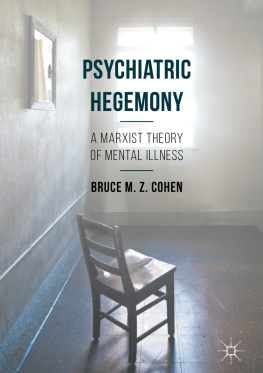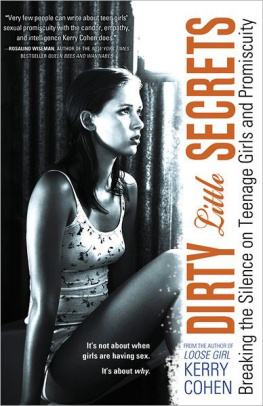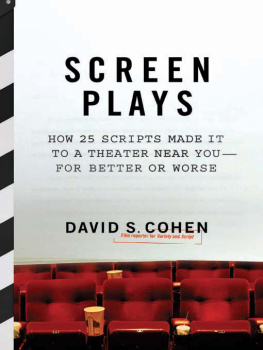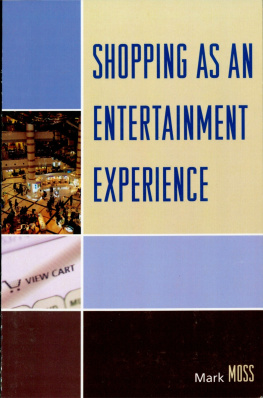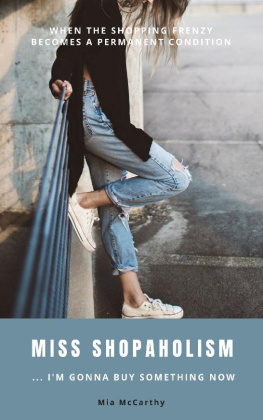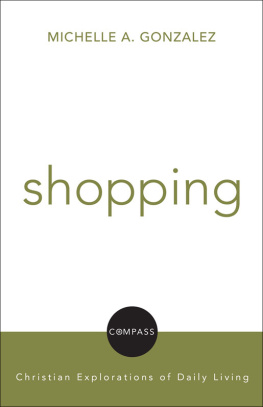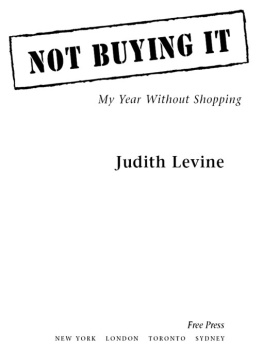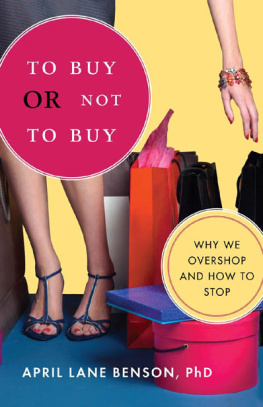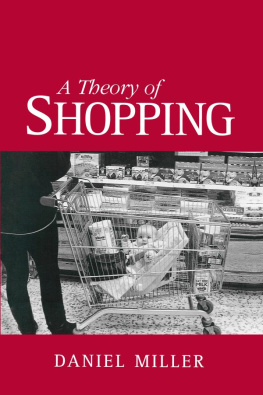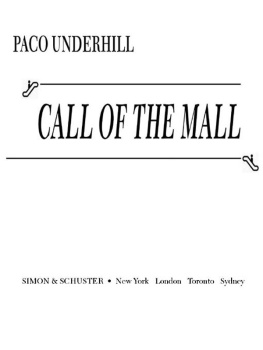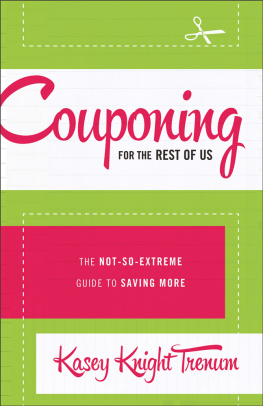


SPENT
Copyright 2014 Kerry Cohen
All rights reserved. No part of this book may be reproduced or transmitted in any form without written permission from the publisher, except by reviewers who may quote brief excerpts in connection with a review.
Where Nothing Bad Can Happen by Monica Drake was previously published in The Rumpus (therumpus.net).
Lets See How Fast This Baby Will Go by Gloria Harrison was previously broadcast on This American Life.
Shopping for Breasts by Wendy Staley Colbert was previously published at Salon.
The Book Money by Aryn Kyle was previously published in More magazine as How I lost $500,000 for Love.
A portion of Mother Lode by Nancy Rommelmann was previously published in LA Weekly.
ISBN 978-1-58005-513-0
Library of Congress Cataloging-in-Publication Data
Spent: exposing our complicated relationship with shopping / [edited by] Kerry Cohen.
pages cm
1. Shopping--Humor. 2. Women consumers. I. Cohen, Kerry. II. Title.
PN6231.S5467S66 2014
813.01083553--dc23
2014009455
Published by Seal Press
A Member of the Perseus Books Group
1700 Fourth Street
Berkeley, California
sealpress.com
Cover by Elke Barter Design
Interior Design by Kate Basart/Union Pageworks
Distributed by Publishers Group West
Hes always asking: Is that new? I havent seen that before. Its like, Why dont you mind your own business? Solve world hunger. Get out of my closet.
MICHELLE OBAMA, from Mrs. Obama Speaks Out About Her Household, The New York Times
contents


Kerry Cohen
S ometimes I joke with my husband about how he has four pairs of shoes in our closet: his fall and winter shoes, his spring and summer shoes, his running shoes, and his biking shoes. When one of these gets worn into shreds, which they do each year, he buys new ones to replace them. But he never has more than those four. I have approximately seventeen pairs of boots and sandals and wedges and heels. I probably also only need four, but Ill dance on the blacktop with anyone who tries to take them away. And, still, I comb for more.
Do you know Old Gringo boots? If not, I might have changed your life just now. You are about to go broke. I have three pairs. After every purchase, I came home and announced to my family that now I would be complete. I would finally be happy. It was a joke. I was kidding. But there was a small prick of hope inside me each time I bought that new pair.
Lots of men shop. I dont mean to suggest they dont. But lets face it: shopping is a womans thing. Bitches gonna shop, its just what we do. And, yet, the more I talk to people, the more I find that its not that simple. Womens relationships to shopping can be intensely complicated. Because the entire shopping industry is geared toward women. Those marketing people know what theyre doing.
When I walk into the makeup counter section of Nordstroms or Saks, I get a tickle in my throat. The colors! The textures! Even those little boxes the mascara comes in! Sometimes I dont throw them out. Theyre so damn pretty with their sleek black gloss and scripted font. Im the biggest pushover for that kind of marketing. I cant help it. Something new feels so good and solid in my hands. Its so lovely and untouched, like a hope.
Theres something stitched within the world of shopping and buying. Shopping isnt just about the worth and value of the things we buy. Its about our own worth, our own value. Just the act of shopping makes us feel good. The things we buy are costumes. They are disguises. They are evidence of who we might become, if we were someone else. Better, perhaps. Or at least different.
As women, we tend to underestimate ourselves. We believe that we are less than, and nothing is more heavily marketed toward women than things that will make us better. The implication is that we arent okay, that we will never be okay. But the right face cream, the right scarf, the right set of plates will perhaps make us better. We will improve, if we just had that thing.
The stories in this collection take us through various takes on this notion. Mel Wells attempts to fill her loss through stealing. Kristin Thiel recovers from a similar sort of loss through a single pair of sneakers. Robin Romm sorts through the extensive items her mother bought after she dies too young, too soon, from cancer. The sorting is also a sorting of her grief, a realization that the things her mother bought were a way to stay tethered to the physical world. The writers here buy clothes. For Emily Chenoweth and Monica Drake, one sweater, one blouse, could modify everything. Susan Senator and Randon Billings Noble contemplate the ways in which the experience of shopping alters when our bodies change. The writers also buy kitchen items, dishtowels, mattresses, tools, cars. The things these writers buy take on illumination through their words. A mattress isnt just a place for Rachel Sontag to sleep; its the home she cant seem to create. The Kitchen Aid isnt just a tool Candace Walsh can use to make baked goods; it represents the ways in which she has finally found her true self.
Some writers see humor. Traci Foust, who hates shopping, raises three sons who love shopping in ways she cant fathom. Ophira Eisenberg tries to come to terms with the fact that she buys shoes she cant afford for a dinner at the White House. Other essays, like Abby Mims about her dying mothers relationship to clothes, are heart wrenching. Jennifer Finney Boylans essay about how life with her family continues with ordinariness and love since her transition from a man to a woman expands our understanding.
All of the essays show that shopping is about much more than we realize. These women illustrate that when we are overwhelmed with work, or more commonly, when our bank accounts are dangerously low, our minds often turn to shopping. Because that new sweater or plush towel or suede boots, with its sweet tag dangling, is a promise for redemption.

Monica Drake
T here was a winter when I was obsessed with a certain green sweater. Love is too big a word. I was deeply interested from a distance, the way its easy to be intrigued by a stranger. The sweater was in a catalogue. I carried the catalogue in an old leather bag, along with paintbrushes, rags, oil paints, and a hardback copy of The Mandarins, by Simone de Beauvoir, that Id found at Goodwill for fifty cents.
Thats how I shopped: used, cheap. Books.
It was 1985. The Mandarins was forty years old. If you dont know it, it is a novel with a Marxist view, filled with serious, dark, and dramatic sentences, like this: Eating to live, living to eatthat had been the nightmare of my adolescence. If it meant going back to that, it would be just as well to turn on the gas at once.
Reagan was president, the rich/poor split creaked open, my home state, Oregon, was deep in a recession, and I didnt believe in conspicuous consumption. To not shop was political: buying new petroleum-based clothes was about buying into the whole Military Industrial Complex. Selling the hours of your life to a job to pay for the trinkets of your life was a consumer trap.
Next page


